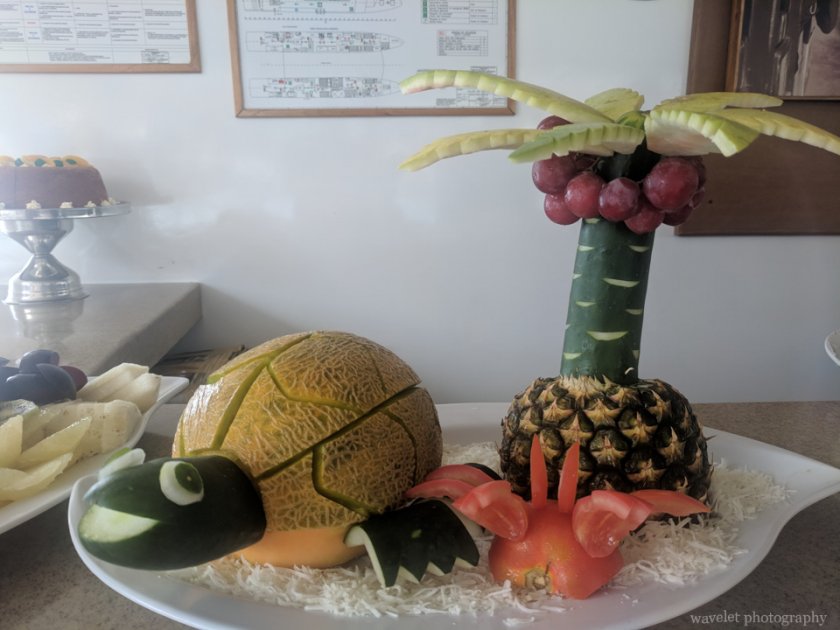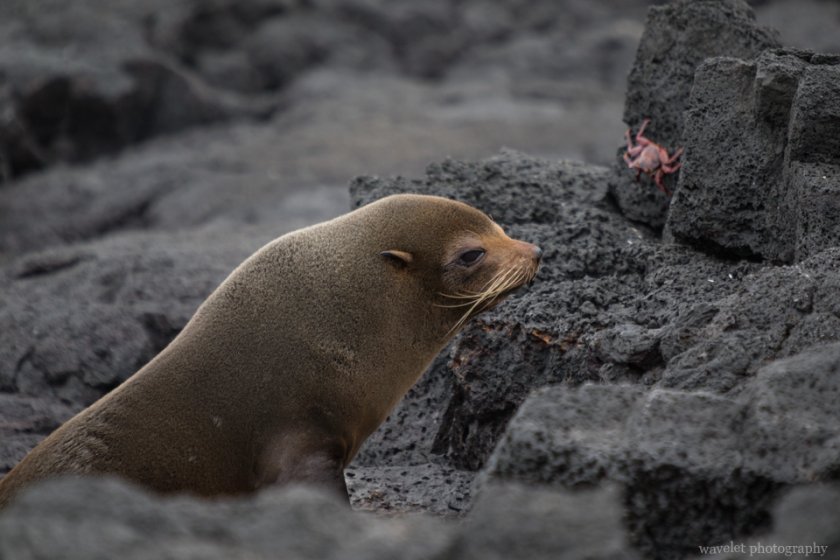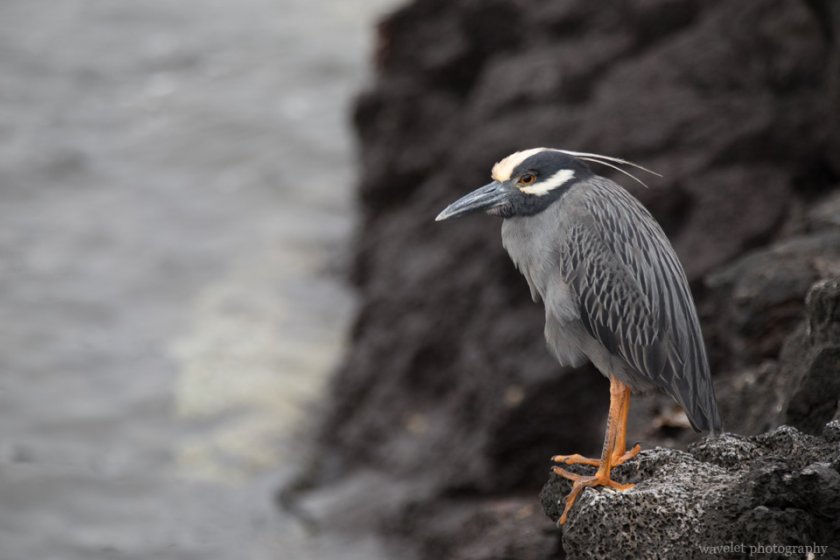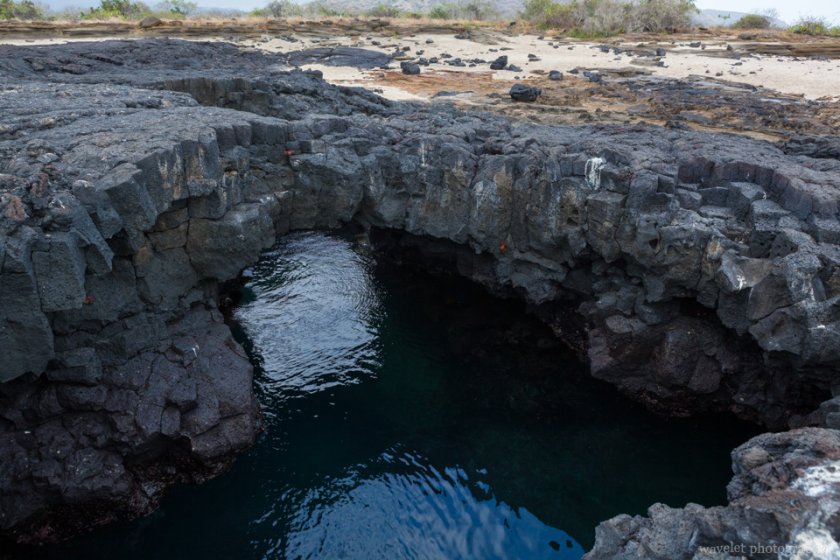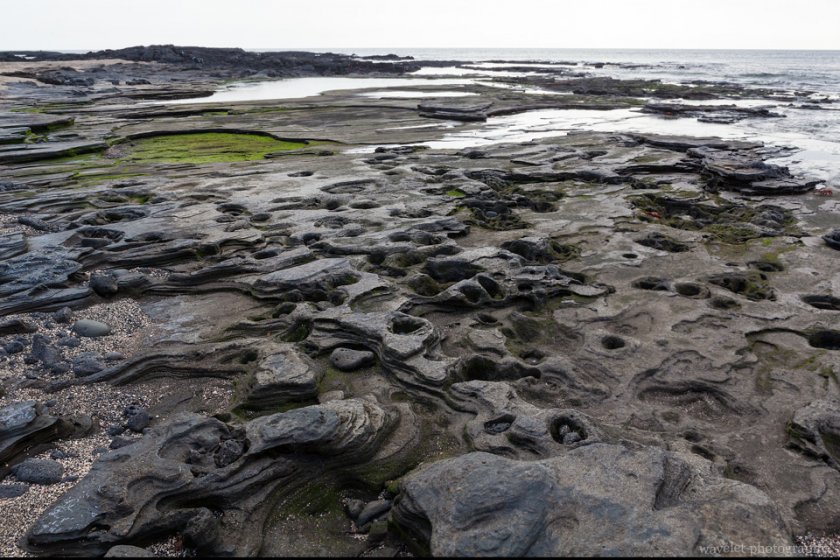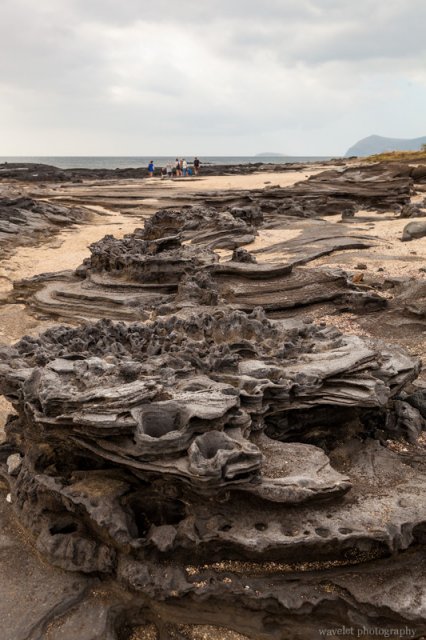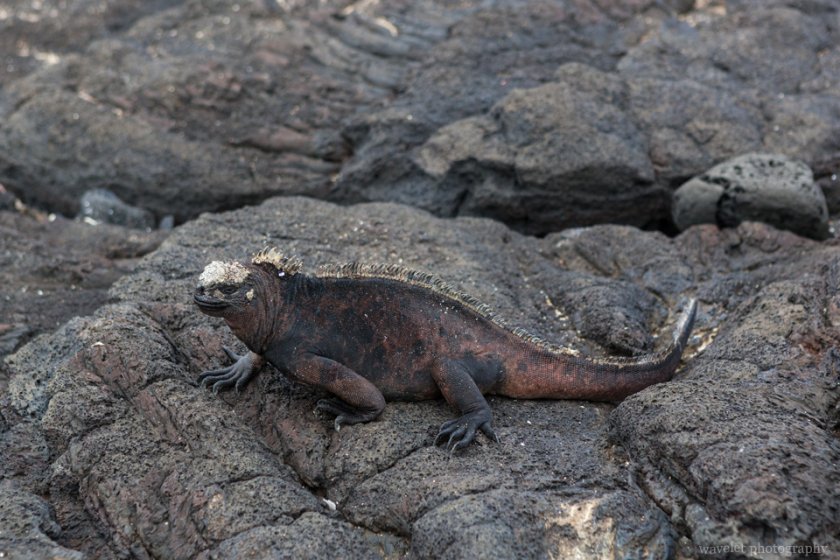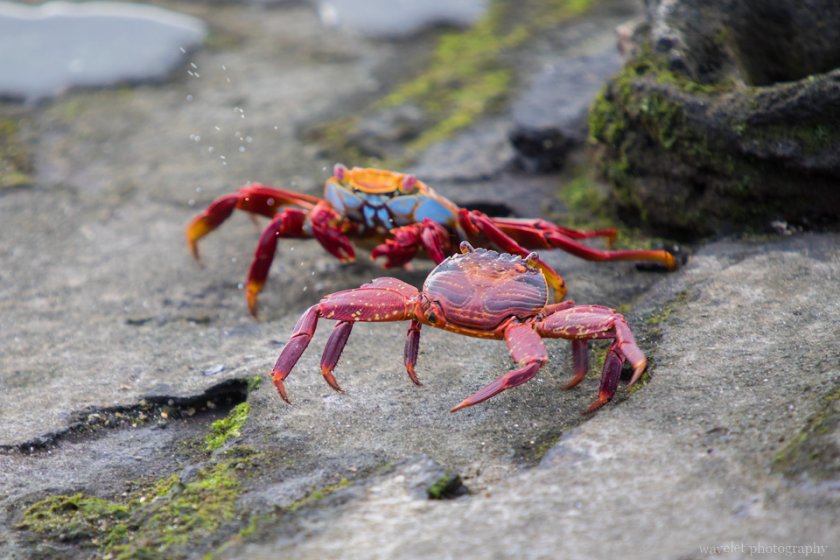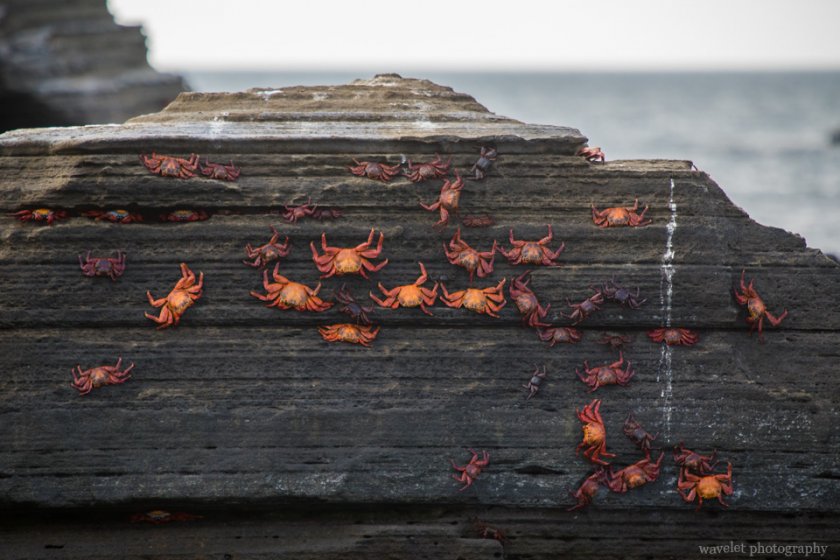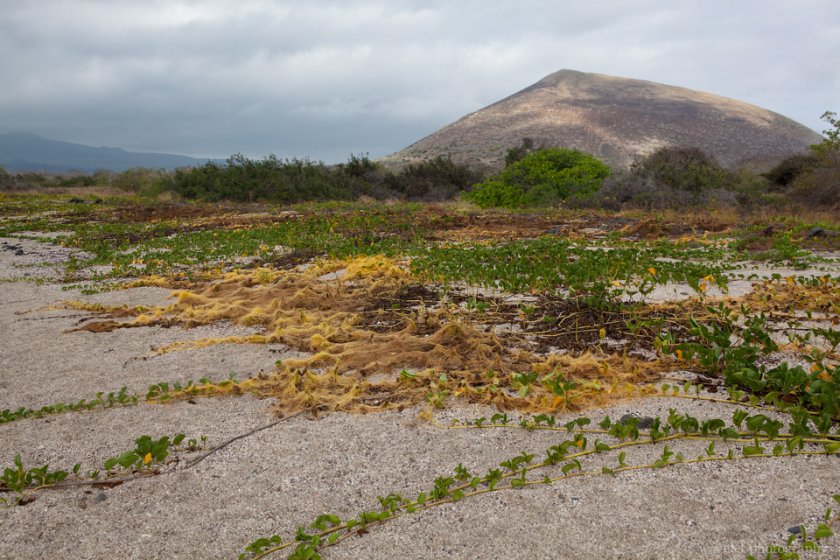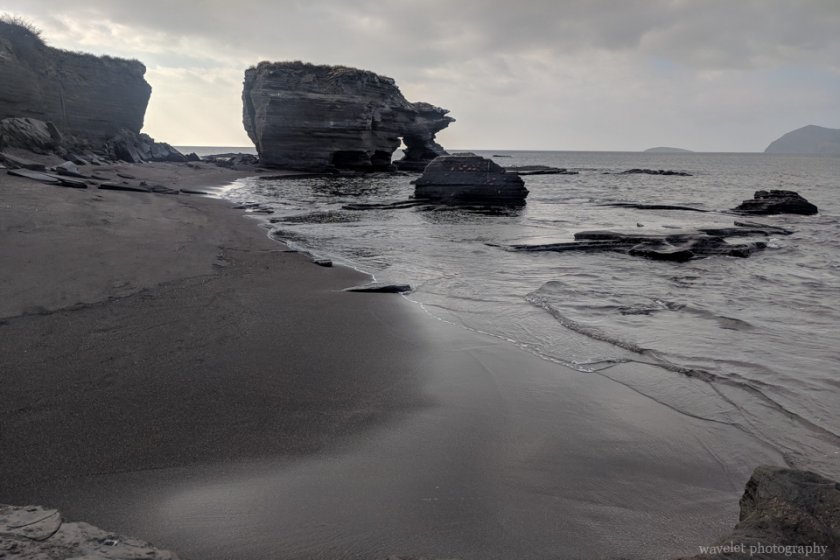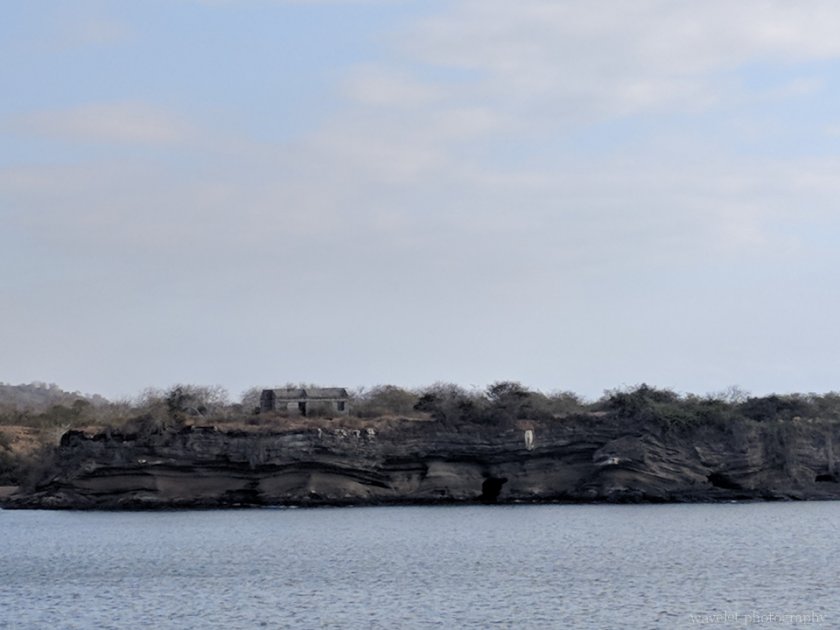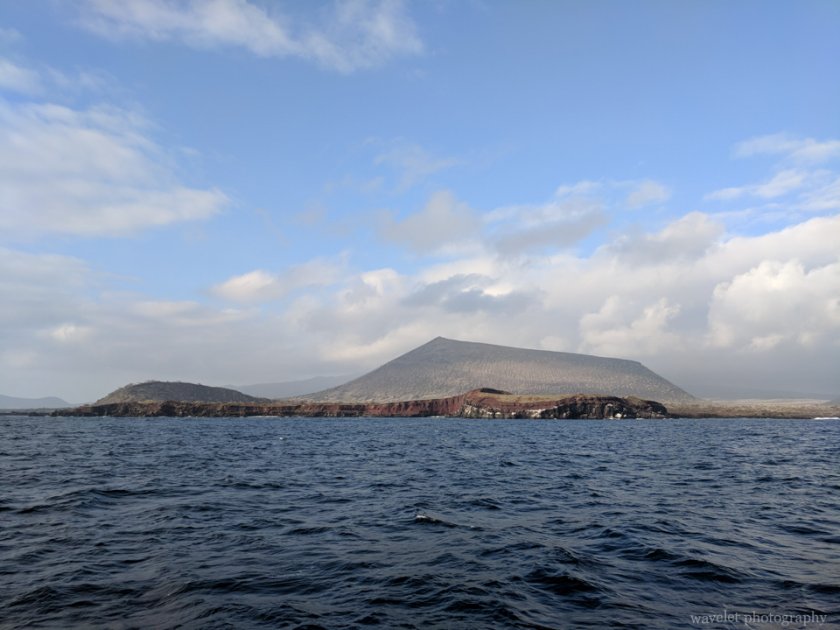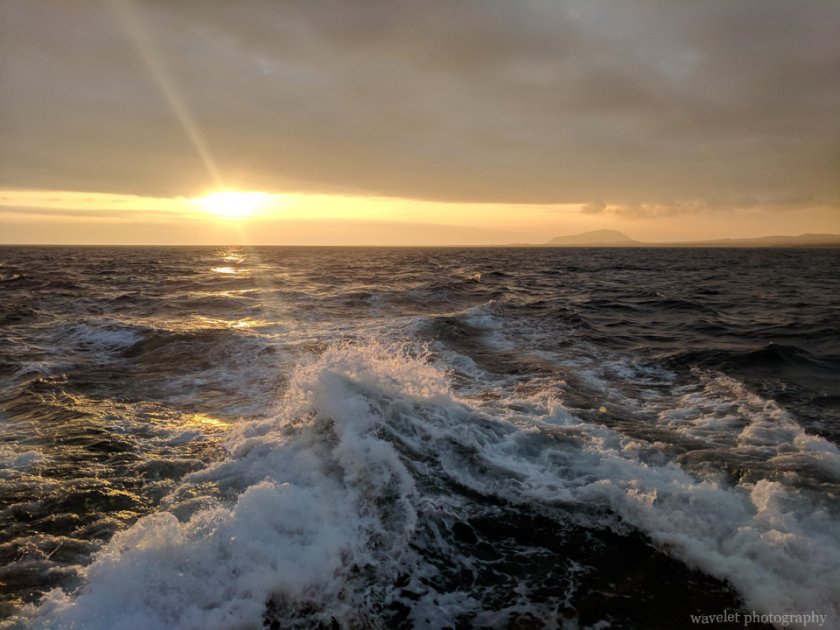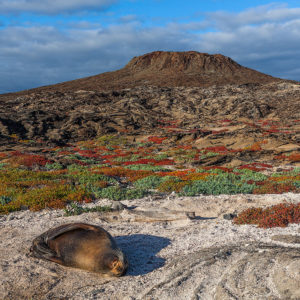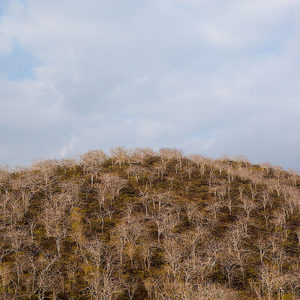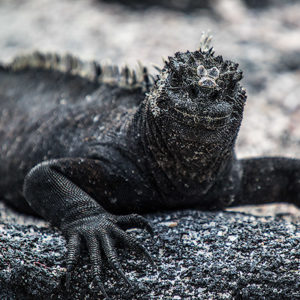2018.7.3
The sea off Isla Albany was calm and the sun was shining. The lunch was moved to the open space on the second deck.
The afternoon landing was at Puerto Egas, south of James Bay. It is the best place to see Galápagos Fur Seal. Fur Seal belongs to a subfamily within the sea lion family. They are smaller than sea lions and have a slightly shorter muzzle. It’s really not easy to tell them apart without looking closely. On the rocks along the shore stand a few Yellow-crowned Night-herons, the sea breeze blowing their plumes slightly. The night-herons rarely move, standing alone in the wind is the main thing they do throughout the day.
Marco led us walking along the coastline. This section of the coast is formed by volcanic rocks. The sea shore zigzags and the terrain is undulating. Repeated slapping of the waves formed the tide pools in different sizes among the rocks. There is a stone bridge where the waves are strong and the erosion is the most severe. This is one of the unique landmark of Puerto Egas, and everyone took pictures here.
The erosion created many rock stacks along the shore, some of which are more than half a meter high. They have this layered swirling structure. The dark lava stack with the unique shape covering large area as far as the eye can see. The view gives a rather supernatural feeling.
Marine iguanas and red crabs (Sally Lightfoot crab) were found everywhere. The red stone crab is not endemic to the Galápagos, but can be found on tropical and subtropical seashores throughout the Americas. They are agile and adept climbers, often clinging to the lava rocks. The immature crabs are not as brightly colored, and the night herons and rock herons that stand quietly on the shore are their major natural predators.
The beach without volcanic rocks is often covered with a type of vines called beach morning glory. It is also called saddle vine because the opposite leaves along the vine resemble a saddle. Their pink trumpet-shaped flowers are unbelievably beautiful on the barren beach, but more importantly, beach morning glory is saline-tolerant and can prevent sand erosion. It is also used as a herb in China.
We walked to the southern point of James Bay. The black beach is made by the eroded lava rocks. The rock formation at the end of the beach looks like the All Terrain Walkers (AT-AT) from Star Wars. The mysterious landscape leads us to an alien planet.
We boarded the ship here. From the ship we could see the abandoned buildings on the shore. This was built for the salt mines back in the 1920s. It is said that there is also an open space nearby, which was a soccer field in those days.
Our boat traveled south along the coastline and woud arrive in the evening at Rábida, a small island to the south of Santiago Island.
